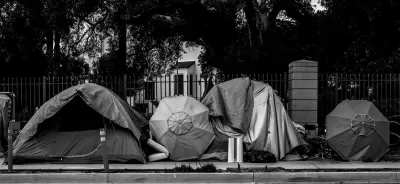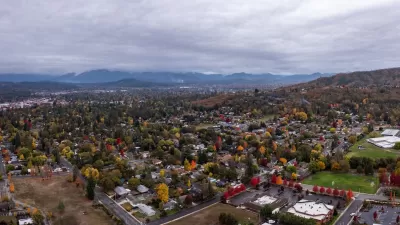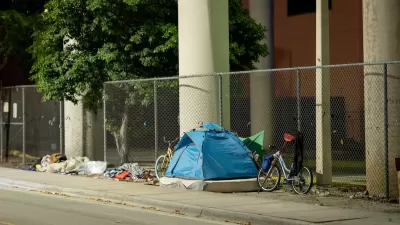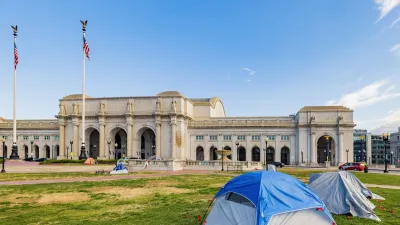The president pushed for sweeping crackdowns and the possible internment of people experiencing homelessness. To see what's coming, we should look to what states have already done.

Louisiana's controversial handling of homelessness during the Super Bowl — spending $17.5 million to bus people to an unheated warehouse — may signal a troubling shift in how cities address visible homelessness. Roshan Abraham of Shelterforce and Next City reveals growing momentum for more aggressive approaches nationwide.
The move comes as HUD Secretary Scott Turner refuses to condemn the use of detention camps for people experiencing homelessness. Instead, Turner has criticized the evidence-based Housing First model, raising concerns among advocates about federal policy shifts.
Cities are already testing new tactics:
- San Francisco and Portland opening sanctioned encampments with strict rules
- New York City expanding involuntary psychiatric holds
- California launching CARE Courts for mental health treatment
- Fremont, California criminalizing assistance to people living outdoors
The chief mechanism for change could be HUD funding, which advocates fear will be used to incentivize states and cities to adopt more aggressive approaches. Those who previously resisted criminalization may soon claim they have no choice.
The privatization of these efforts raises additional concerns. In Louisiana, a disaster recovery contractor ran the “transitional center,” paying staff far more than comparable government positions while conditions remained poor.
For urban planners and policymakers, these developments signal a potential sea change in how American cities handle homelessness—one that prioritizes removal and containment over evidence-based solutions.
FULL STORY: Trump Wants to Force Homeless People into ‘Tent Cities.’ Can He?

Alabama: Trump Terminates Settlements for Black Communities Harmed By Raw Sewage
Trump deemed the landmark civil rights agreement “illegal DEI and environmental justice policy.”

Planetizen Federal Action Tracker
A weekly monitor of how Trump’s orders and actions are impacting planners and planning in America.

The 120 Year Old Tiny Home Villages That Sheltered San Francisco’s Earthquake Refugees
More than a century ago, San Francisco mobilized to house thousands of residents displaced by the 1906 earthquake. Could their strategy offer a model for the present?

Ken Jennings Launches Transit Web Series
The Jeopardy champ wants you to ride public transit.

BLM To Rescind Public Lands Rule
The change will downgrade conservation, once again putting federal land at risk for mining and other extractive uses.

Indy Neighborhood Group Builds Temporary Multi-Use Path
Community members, aided in part by funding from the city, repurposed a vehicle lane to create a protected bike and pedestrian path for the summer season.
Urban Design for Planners 1: Software Tools
This six-course series explores essential urban design concepts using open source software and equips planners with the tools they need to participate fully in the urban design process.
Planning for Universal Design
Learn the tools for implementing Universal Design in planning regulations.
Clanton & Associates, Inc.
Jessamine County Fiscal Court
Institute for Housing and Urban Development Studies (IHS)
City of Grandview
Harvard GSD Executive Education
Toledo-Lucas County Plan Commissions
Salt Lake City
NYU Wagner Graduate School of Public Service





























